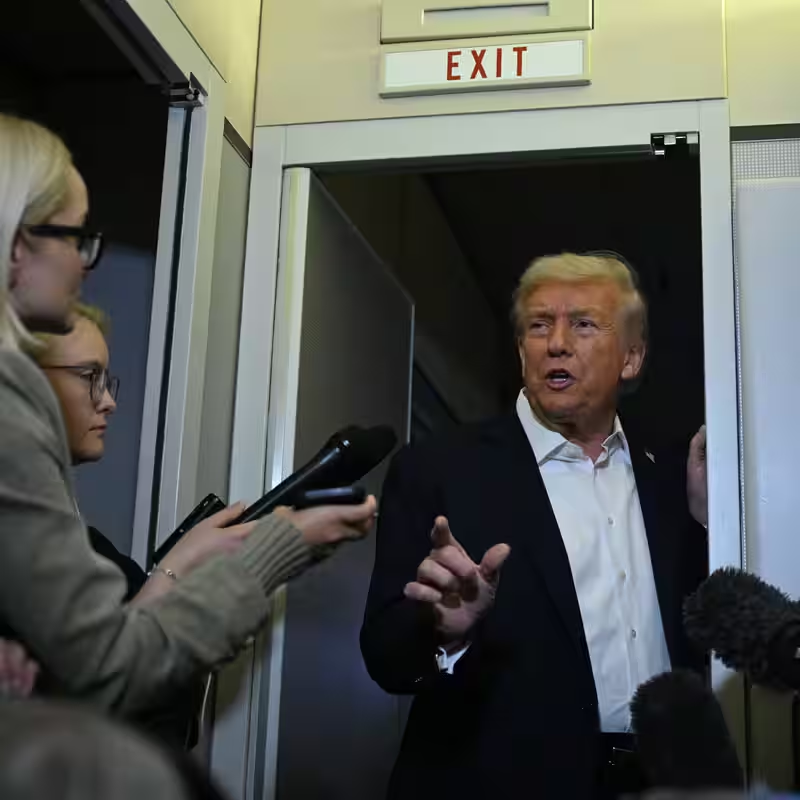Table of Contents
- What Happened in the Latest Boat Strike?
- Trump’s New ‘Narcoterrorism’ Doctrine
- Legal Experts Call Strikes ‘Extrajudicial Killings’
- How the Pentagon Is Justifying Military Action
- Why Congress Hasn’t Stepped In
- What This Means for Latin America
- What Happens Next?
- Sources
U.S. Military Kills 6 in Fifth Boat Strike Near Venezuela
In a dramatic escalation of his administration’s war on drugs, President Donald Trump announced on Tuesday, October 14, 2025, that U.S. forces had killed six people aboard a vessel in international waters “just off the Coast of Venezuela.” The strike marks the fifth such military operation since early September—and the 27th confirmed death in what critics are calling a shadow war with no congressional authorization.
Posting on social media, Trump claimed the boat was “affiliated with a Designated Terrorist Organization (DTO)” and involved in narcotrafficking. He shared a 33-second surveillance video showing the vessel explode after being hit by a missile—but offered no evidence linking the individuals to any specific cartel or terrorist group.

From Cartels to ‘Narcoterrorists’: A New Legal Label
The U.S. boat strike near Venezuela is part of a broader policy shift under Trump, who has reclassified major Latin American drug cartels—including some previously seen as profit-driven criminal enterprises—as “foreign terrorist organizations.” This designation, first rolled out in September 2025, allows the administration to treat suspected smugglers as wartime combatants rather than civilian suspects.
“Under my Standing Authorities as Commander-in-Chief, this morning, the Secretary of War ordered a lethal kinetic strike,” Trump wrote, using the archaic title “Secretary of War” to refer to Defense Secretary Pete Hegseth.
Unlike traditional Coast Guard interdictions—which aim to arrest suspects and seize contraband—these new operations are designed to kill on sight.
Legal Experts Cry Foul: ‘This Isn’t War—It’s Murder’
Constitutional scholars and international law experts have raised serious concerns. “There is no legal basis for treating drug smugglers as enemy combatants,” said Mary Ellen O’Connell, a law professor at Notre Dame. “This is extrajudicial killing, plain and simple.”
Under international humanitarian law, lethal force in wartime is permitted only against individuals directly participating in hostilities. But drug trafficking—even at scale—is not considered an act of war unless tied to an armed insurgency, which the administration has not demonstrated.
Adding to the controversy: none of the victims in the latest strike have been publicly identified by nationality, and no drugs were shown in the surveillance footage.
Pentagon Cites ‘Self-Defense’ and ‘Standing Authorities’
The Trump administration has offered shifting legal rationales. The first strike on September 2 was justified as “self-defense.” Later strikes cited a newly declared “armed conflict” with cartels. The latest post makes no mention of either—instead invoking the president’s role as Commander-in-Chief.
Charles L. Young III, Trump’s nominee for Army general counsel, told Congress he had seen a Justice Department memo supporting the operations—but refused to share its contents, citing executive privilege.
Congress Remains Largely Silent
Despite the gravity of these actions, Congress has not held a single hearing on the boat strikes. No war powers resolution has been introduced. And no major party leader has publicly condemned the policy.
Legal analysts say this silence effectively greenlights further military action—setting a dangerous precedent for future presidents.
Venezuela and Neighboring Nations React
Venezuelan officials condemned the strike as a violation of sovereignty, even though it occurred in international waters. “This is U.S. imperialism disguised as anti-drug policy,” said Foreign Minister Yván Gil.
Meanwhile, regional security experts warn the campaign could destabilize the Caribbean. Smugglers may shift routes, arm themselves more heavily, or retaliate—potentially drawing the U.S. into deeper conflict.
What Happens Next?
With Trump vowing to “eliminate the cartels,” more strikes appear imminent. But the lack of transparency, legal clarity, and oversight raises urgent questions about accountability in America’s newest—and most secretive—war.
As one former Pentagon official put it: “We’re not fighting terrorists. We’re redefining words to justify killing people we don’t like.”




